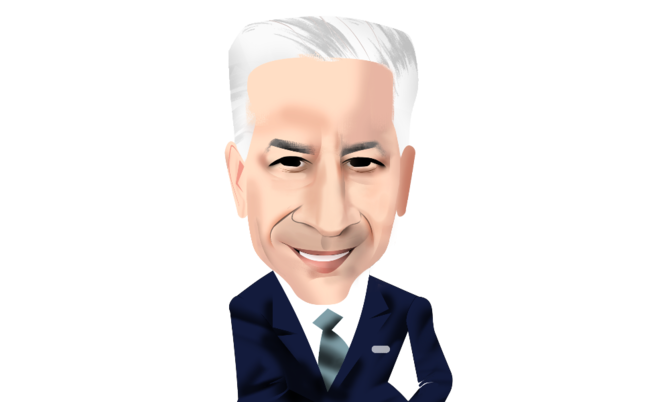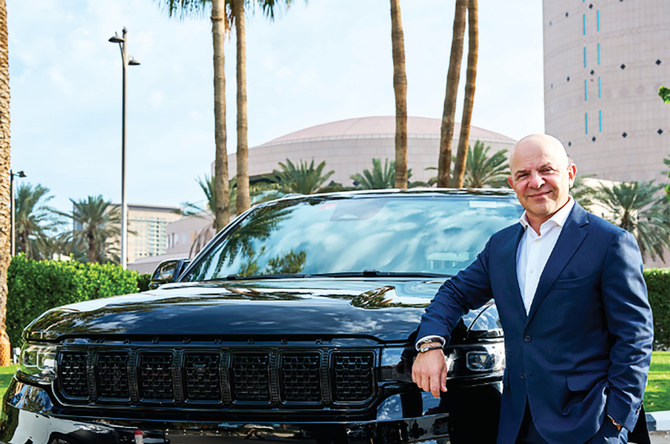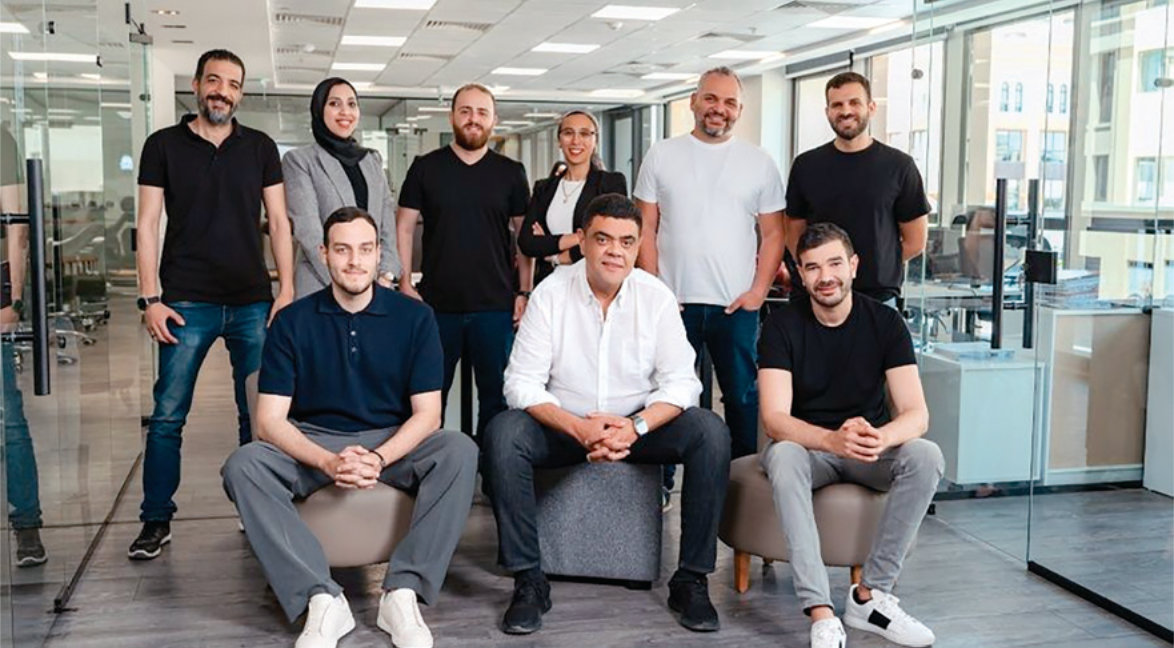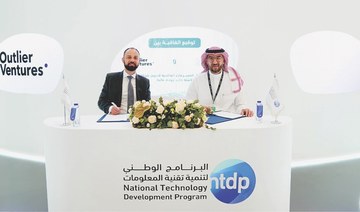DUBAI: Jose Silva, CEO of the Jumeirah Group, is a hotelier, restaurateur, tourism expert and an authority on luxury lifestyles. But he does not see any of these roles as his primary focus.
He is, by his own description, a purveyor of experiences to sophisticated consumers who want to perfect their own personal “bucket list” of upmarket adventures, and share them with the rest of the world.
This is not just some marketing argot, and Silva can rattle off a list of economic statistics to show his “experience strategy” is firmly rooted in sound commercial logic.
“The US Bureau of Economic Analysis says that the experience economy is four times bigger than the physical goods economy. Travel, restaurants, fitness, cinema, theater, spa treatments, club membership — everything you spend on you that you don’t bring home,” he said.
The speed of modern communication means that those experiences — from an haute cuisine dinner to an elegant hotel room or deluxe spa — can be shared instantly. This is the second pillar of the experience economy: Shareability.
“Technology is fast-tracking communication. Now you have instant connections, and you’re permanently plugged in. So a chef is doing something in Paris … and it will be instantly pushed through to you,” Silva said.
He illustrated the point by whipping out an iPhone with photos of dishes created the previous evening at various restaurants worldwide, compiled by Jumeirah’s global network of food experts.
The Burj Al Arab is the most Instagrammed hotel in the world. It’s more than a hotel, it is an icon.
Jose Silva
The skill lies in how that experience information is applied to the Jumeirah business. The urbane Silva has had the top job at Dubai’s flagship leisure group for just over a year, and has already brought a new style to the organization.
Along with the likes of Emirates airline and DP World ports, Jumeirah is one of the big engines of Dubai’s economy, a crucial pillar in the emirate’s commercial life summed up as the “three Ts” — trade, transport and tourism. As such, it is also a barometer for Dubai’s economic health.
Silva dismissed suggestions that the “Dubai dream” is over. “Has it reached a certain maturity? Probably. Is it going to be double-digit growth forever? Of course not. But tourism growth is ... at just under 4 percent per year, and supply (of new hotel rooms and facilities) is about 5 percent,” he said.
“Dubai is the fourth most visited city in the world, just after Paris. When a city has reached that critical mass, there’s no going back. You don’t become the fourth most visited city in the world just by being a dream. And if the fourth most visited city in the world is growing at 4 percent, I don’t think we’ve got a problem.”
However, he acknowledged that Dubai will have to “recalibrate” the economy and the leisure industry in the face of a softer economic outlook.
Some parts of the Jumeirah business are in very little need of any recalibration. Its flagship waterfront development — the 2-km-long beach front that includes the Madinat complex, the famed Burj Al Arab and the popular Jumeirah Beach Hotel — is booming.
Work has already begun on the next phase of the development, the Marsa Al Arab, which will double the amount of beachfront in the heart of Dubai’s leisure hub and add to hotel space.
The Madinat Jumeirah Resort offers a range of luxury hotel facilities: Grand luxe Arabian style at Al Qasr, modern chic at Al Naseem, and luxury conferencing and resort facilities at Mina A’Salam. Next door is the upmarket family leisure destination at the Jumeirah Beach Hotel and then, of course, the sail-shaped Burj Al Arab.
“The Burj is the most Instagrammed hotel in the world. It’s more than a hotel, it is an icon,” Silva said.
Chinese tourists now comprise 40 percent of the Burj clientele, he said, and they all want their picture alongside the distinctive building, confirming that it has made it onto the Asia “bucket list” — although guests need to pay handsomely for the experience.
“The rates for the Burj are (above) 6,000 dirhams ($1,634) … high season, it is 10,000 dirhams a night. It’s an all-suite hotel and the average suite size is 200 sq. meters, so it’s one of a kind,” Silva said.
---------
BIO
BORN
•Azores (Portugal), 1962
EDUCATION
•Le College Ahuntsic, Quebec, Canada
CAREER
•Queen Elizabeth Hotel, Montreal, food and beverage manager
•Montreal, restaurant owner Le Paris Match, Montreal
•Director of Beverage, Sheraton Hotels, Canada
•Executive posts at Four Seasons Hotels in Switzerland and France
•General Manager George V, (Four Seasons) Paris
•Chief Executive Officer, Jumeirah Group
---------
But even the majestic Burj will need to bend to the modern customer tastes, Silva hints. “The future is about liberating choice for guests, and they should be able to order, in a proper way. Their room is their residence and they should be able to access everything from their room, whether it is a fine dining menu or whether it is from any other restaurant of their choosing,” he said.
Other new choices for guests could be allowing outside salon services into the Madinat hotels, as well as an Uber-style limousine service.
But in other ways, Silva’s vision for Jumeirah’s luxury establishment reflects his background in the five-star hotel business, especially the swanky George V in Paris, a Four Seasons hotel, where he was general manager.
The Burj will soon get an influx of top-rated chefs, reinforcing Silva’s policy of taking Jumeirah cuisine policy to a different level under “chief culinary officer” Michael Ellis, a former director of the famous Michelin Guides.
Outside the UAE, Jumeirah’s international expansion appears relentless. New hotels have opened recently in Bahrain, as well as in Nanjing in China (“one of the most beautiful hotels in the world,” Silva believes), while later this year new properties will be launched in Guangzhou, China, and Bali, Indonesia.
Europe is another priority. The Carlton Tower in Knightsbridge, London, is set for a $100 million refit that will make it a 50 percent suite hotel. The “strategic tourism cities” of Europe are the next focus.
The Brexit chaos in Britain does not seem to concern him too much. “There will be a big drop in GDP in year one (if the UK crashes out of the EU), but within 5 years will it not be normalized, will it not grow again? A 5 percent drop in London is insignificant in the medium term,” he said.
Silva also sees a possible reentry to the US as a goal. “It’s a strategic market. We’d love to be in the US, but we’re looking for the right opportunity and the right partner. Expansion in Asia and Europe went faster, but our next target is the US. There are destinations that we love — New York is an obvious one, on the West Coast Los Angeles, and Miami is very interesting. Miami is the door to Central and South America and we have nothing there yet,” he said.
And then there is Saudi Arabia. Under previous CEOs, a move into the Kingdom was signaled virtually every year, but never got beyond the planning stage. Jumeirah is involved in a development in Makkah, but elsewhere Silva repeated the mantra that the opportunity has to be the right one.
“We would love to be in Saudi Arabia, not sure if in Jeddah or Riyadh. It’s only logical that Jumeirah should be there. But we’re looking for the right project, a landmark, a hotel that would stand tall in the market, and there are not that many of those that come up,” he said, adding that Jumeirah would be assessing the potential of giga-projects like NEOM and the Red Sea Resort when those plans are clearer.
He took issue with the recent public statement by the CEO of French hotel chain Accor, Sebastien Bazin, suggesting that the Kingdom should relax the absolute ban on alcohol in certain locations to boost the tourism industry. “This is not a matter for the CEO of a private company. We don’t have a view. We like to obey all the regulations in other countries … You need to respect local laws and practices,” said Silva.
In Dubai, Jumeirah has certainly done that, but it has also been one of the catalysts that have given the emirate its uniquely relaxed and tolerant public face in the region. Jumeirah is part of Dubai Holding, the government-related entity that also runs big property projects and several free zones in the emirate.
Even in challenging times, such as the Dubai debt crisis of 2009, Jumeirah was an important contributor to government funds via the dividend it pays to Dubai Holding. In return, Silva gets to use the resources in IT, finance, corporate advisory and construction that its holding company can provide.
“I think we’re quite privileged to have them,” he said. The possibility of a share flotation — and IPO — out of Dubai Holding had never arisen during his time at Jumeirah, he said.
The group’s longstanding corporate motto is “stay different,” but that looks likely to change in what Silva calls “the era of the small device” and the experience economy. “We like ‘different’, but not ‘stay’,” an aide said.
Silva agreed. “You’re only going to share something that goes beyond expectations,” he said.
A previous version of this story included a quote from Mr. Silva that mentioned a specific brand name in relation to potential food deliveries to a Jumeriah hotel. This quote was later retracted; the text has been amended above.




























